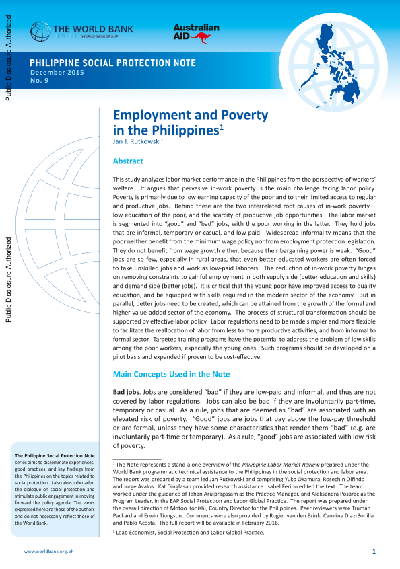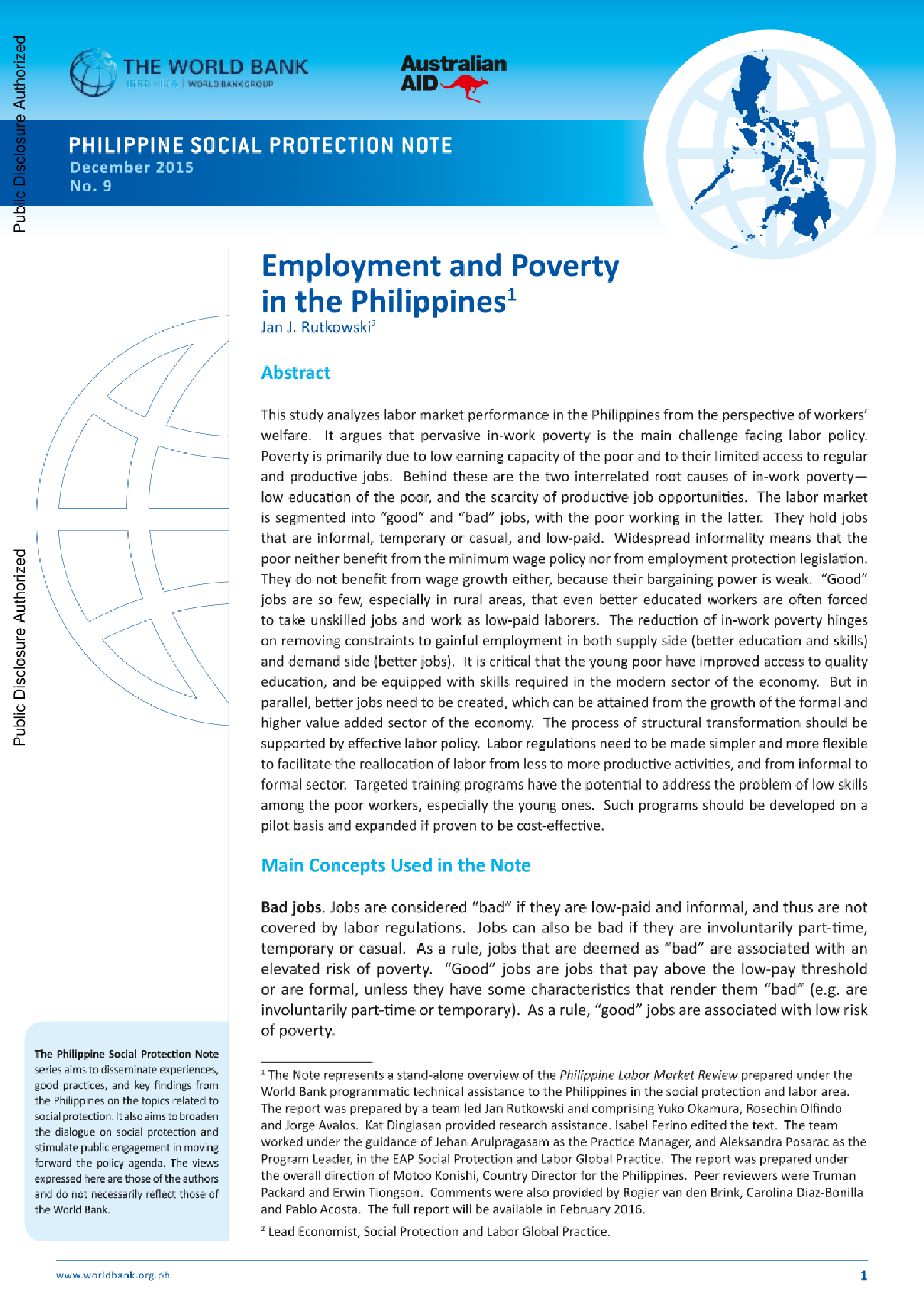



收藏
纠错
这项研究从工人福利的角度分析了菲律宾的劳动力市场表现。它认为普遍存在的工作贫困是劳工政策面临的主要挑战。贫穷主要是由于穷人的收入能力低下以及他们获得正规和生产性工作的机会有限。这些背后是工作中贫穷的两个相互关联的根本原因,即穷人的低学历和生产性工作机会的匮乏。
菲律宾的就业与贫困 Abstract This study analyzes labor market performance in the Philippines from the perspective of workers' welfare. It argues that pervasive in-work poverty is the main challenge facing labor policy. Poverty is primarily due to low earning capacity of the poor and to their limited access to regular and productive jobs. Behind these are the two interrelated root causes of in-work poverty- low education of the poor, and the scarcity of productive job opportunities. The labor market is segmented into "good" and bad jobs, with the poor working in the latter. They hold jobs that are informal, temporary or casual, and low-paid. Widespread informality means that the poor neither benefit from the minimum wage policy nor from employment protection legislation. They do not benefit from wage growth either, because their bargaining power is weak. Good" jobs are so few, especially in rural areas, that even better educated workers are often forced to take unskilled jobs and work as low-paid laborers. The reduction of in-work poverty hinges on removing constraints to gainful employment in both supply side (better education and skills) and demand side (better jobs). It is critical that the young poor have improved access to quality education, and be equipped with skills required in the modern sector of the economy. 【更多详情,请下载:菲律宾的就业与贫困】
